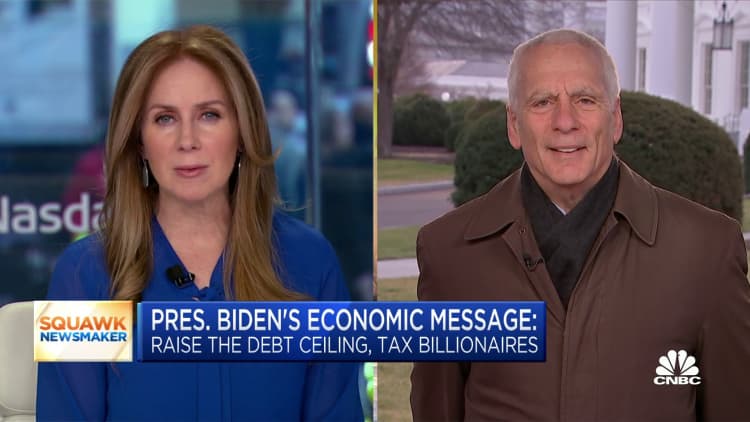Pre-tax vs. Roth 401(k): Deciding which to use for retirement is trickier than you think
Prathanchorruangsak | Istock | Getty Images
Whether you’re starting a new job or updating retirement savings goals, you may need to choose between pre-tax or Roth 401(k) contributions — and the choice may be more complex than you think.
While pre-tax 401(k) deposits offer an upfront tax break, the funds grow tax-deferred, meaning you’ll owe levies upon withdrawal. By contrast, Roth 401(k) contributions happen after taxes, but your future earnings grow tax-free.
Most plans have both options. Roughly 88% of 401(k) plans offered Roth accounts in 2021, nearly double from a decade ago, according to the Plan Sponsor Council of America, which surveyed more than 550 employers.
While your current and future tax brackets are part of the puzzle, experts say there are other factors to consider.
“It’s hard speaking in broad terms because there are so many things that go into making that decision,” said certified financial planner Ashton Lawrence, partner at Goldfinch Wealth Management in Greenville, South Carolina.
Here’s how to decide what’s right for your 401(k).
Compare your current and future tax brackets
One of the big questions to consider is whether you expect to be in a higher or lower tax bracket in retirement, experts say.
Generally speaking, pre-tax contributions are better for higher earners because of the upfront tax break, Lawrence said. But if your tax bracket is lower, paying levies now with Roth deposits may make sense.
If you’re in the 22% or 24% bracket or lower, I think the Roth contribution makes sense, assuming you’ll be in a higher bracket upon retirement.
Lawrence Pon
CPA at Pon & Associates
Lawrence Pon, a CFP and certified public accountant at Pon & Associates in Redwood City, California, said Roth 401(k) contributions are typically good for younger workers who expect to earn more later in their careers.
“If you’re in the 22% or 24% bracket or lower, I think the Roth contribution makes sense, assuming you’ll be in a higher bracket upon retirement,” he said.
‘Taxes are on sale’ through 2025
Although it’s unclear how Congress may change tax policy, several provisions from the Tax Cuts and Jobs Act of 2017 are scheduled to sunset in 2026, including lower tax brackets and a higher standard deduction.
Experts say these expected changes may also factor into the pre-tax vs. Roth contributions analysis.
“We’re in this low-tax sweet spot,” said Catherine Valega, a CFP and founder of Green Bee Advisory in Boston, referring to the three-year period before tax brackets may get higher. “I say taxes are on sale.”
We’re in this low-tax sweet spot.
Catherine Valega
Founder of Green Bee Advisory
While Roth contributions are a “no-brainer” for young, lower earners, she said the current tax environment has made these deposits more attractive for higher-income clients, as well.
“I have clients who can get in $22,500 for three years,” Valega said. “That’s a pretty nice chunk of change that will grow tax-free.”
Plus, recent changes from Secure 2.0 have made Roth 401(k) contributions more appealing for some investors, she said. Plans may now offer Roth employer matches and Roth 401(k)s no longer have required minimum distributions. Of course, plans may vary based on which features employers choose to adopt.

Many investors also consider ‘legacy goals’
Lawrence from Goldfinch Wealth Management said ‘legacy goals’ are also a factor when deciding between pre-tax and Roth contributions. “Estate planning is becoming a larger piece of what people are actually thinking about,” he said.
Since the Secure Act of 2019, tax planning has become trickier for inherited individual retirement accounts. Previously, non-spouse beneficiaries could “stretch” withdrawals across their lifetime. But now, they must deplete inherited IRAs within 10 years, known as the “10-year rule.”
The withdrawal timeline is now “much more compact, which can impact the beneficiary, especially if they’re in their peak earning years,” Lawrence said.
However, Roth IRAs can be a “better estate planning tool” than traditional pre-tax accounts because non-spouse beneficiaries won’t owe taxes on withdrawals, he said.
“Everyone has their own preferences,” Lawrence added. “We just try to provide the best options for what they’re trying to achieve.”
For all the latest Business News Click Here
For the latest news and updates, follow us on Google News.

